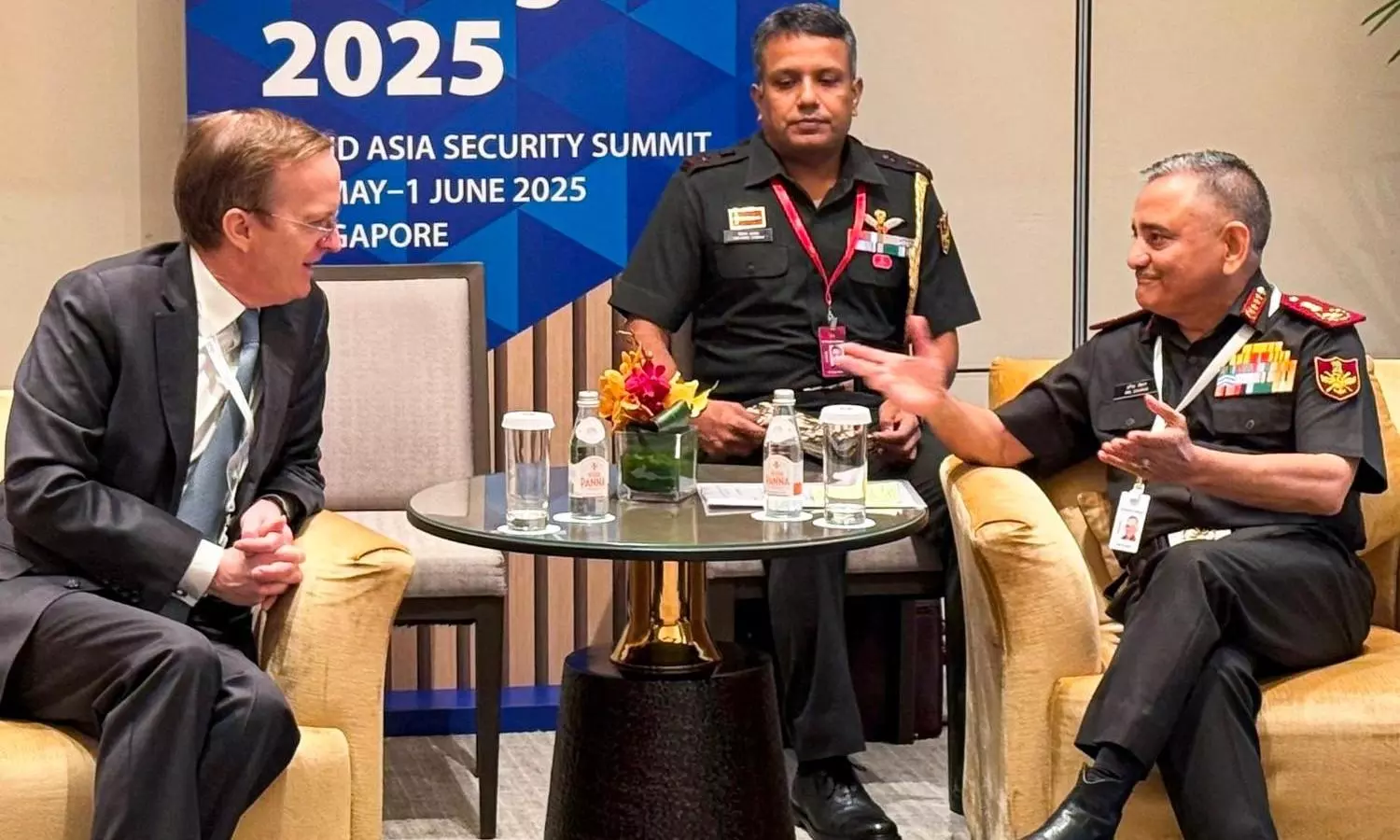
CDS Chauhan outlines India’s strategy and wins in Op Sindoor: 10 points
Regarding Op Sindoor, CDS says it was a non-contact, multi-domain conflict involving both kinetic and non-kinetic elements which exemplifies future of warfare

Chief of Defence Staff (CDS) General Anil Chauhan has opened up on Operation Sindoor, offering detailed insights into India’s approach, military performance, and geopolitical messaging.
Addressing military leaders from across the world at the IISS-organised Shangri-La Dialogue in Singapore in a closed-door session on Friday (May 30), Gen Chauhan covered multiple aspects — from nuclear policy and cyber warfare to the role of indigenous systems like Akash.
Regarding Operation Sindoor, CDS said what unfolded was a non-contact, multi-domain conflict involving both kinetic and non-kinetic elements which exemplifies the future of warfare.
Also Read: ‘Jet being downed not important, but why’: CDS on Op Sindoor losses
Strategic clarity
Gen Chauhan spoke on the India-Pakistan relationship and rejected the idea of “strategic aimlessness”. He rejected the idea that India lacks a coherent strategy towards Pakistan.
He noted that despite Pakistan being ahead of India in many metrics after Independence, India was now ahead on all fronts — from the economy to human development.
“At Independence, Pakistan was ahead by many metrics; today, India leads in GDP, social harmony, and development. That progress reflects a long-term strategy," he said.
When fewer lives are at risk, decision-makers may act more aggressively. This shift presents serious ethical and strategic challenges — CDS Gen Anil Chauhan
Diplomatic disengagement
Gen Chauhan underscored that India's current policy against Pakistan was of strategic disengagement as New Delhi received nothing but hostility from Islamabad despite diplomatic outreach.
Diplomatic outreach has occurred but reciprocation is lacking. In such cases, strategic disengagement is itself a considered response,” he added.
India's war strategy
The CDS also spoke on losses and said “no war is without cost — but what matters is how one responds. India responded effectively within three days, without further escalation”.
He also noted that prolonged mobilisation without combat imposes a significant cost. “That’s why India disengages swiftly post-operations. Prolonged wars hinder national development — something adversaries may aim to disrupt,” he said talking about the short and swift conflict.
Also Read: India's military preparedness must remain top-notch: CDS Gen Chauhan
Indigenous technology
The CDS noted that while Pakistan may have leveraged Chinese commercial satellite imagery, there is no proof of real-time targeting support.
Regarding space and satellite intelligence, he reiterated that commercial access is available to all. “India relied on its own capabilities, while adversaries may have sought help from allies—but real-time coordination remains unconfirmed.”
Akash missile system
Gen Chauhan pointed out that India’s focus on indigenous platforms, like Akash, and self-reliant networking infrastructure has paid off. Integration of diverse radars into a unified air defence system was a key success, he underlined.
He also pointed out how the Akash missile system was effectively used to neutralise attacks from Pakistan. It was pivotal in thwarting Pakistan's sustained drone and missile attacks during Operation Sindoor.
"We have not only used indigenous platforms like the Akash missile system effectively, but we have also built our own networking infrastructure for air defence without relying on foreign vendors. We have integrated radars from multiple sources into a cohesive network across India and that was crucial," he said.
Disinformation battle
Noting the high influx of fake news during Operation Sindoor, General Anil Chauhan said, "15 per cent of operational time was spent countering fake narratives, underlining the need for a dedicated information warfare vertical."
"Combating fake news was a constant effort. Our communication strategy was deliberate; we chose to be measured, not reactive, because misinformation can quickly distort public perception during high-stakes operations," he said
According to the CDS, India’s strategy for managing narratives was focussed on fact-based communication even at the cost of slower responses.
"Initially, two women officers served as spokespeople while the senior leadership was engaged in operations. Only after the 10th of May did the DGMOs brief the media,” he said.
Also Read: Form of war changing rapidly; valour alone not enough: CDS Chauhan
Nuclear escalation
On the question of any possibility of a nuclear escalation between India and Pakistan, Gen Chauhan said in this context, the Indian military is seen as a rational actor.
He said the nuclear escalation in undeclared wars was illogical. During the crisis, he asserted, India retained full operational clarity and autonomy, regardless of broader geopolitical currents.
Future of warfare
On the issue of automation and robotics, Gen Chauhan warned that reducing the human cost of war may increase the likelihood of conflict escalation.
“When fewer lives are at risk, decision-makers may act more aggressively. This shift presents serious ethical and strategic challenges,” he said.
The CDS noted that the modern warfare is undergoing a complex convergence of tactics, domains (land, air, sea, cyber, space), time frames and strategies.
Maritime strategy
Speaking about the Indian Ocean region, especially the northern Bay of Bengal, Gen Chauhan noted that geographical and geopolitical challenges — posed by China to the north and Myanmar to the east — limit India's movement, making the sea its strategic outlet.
“Though continental, India functions like an island nation, with its island territories providing depth. New concerns have emerged, but the view is expanding southward to secure broader maritime interests,” he said.
Also Read: Pak military remains threat despite economic turmoil: CDS Gen Anil Chauhan
Cyber attacks
Gen Chauhan noted that while some public platforms faced cyber attacks, the operational systems remained unaffected
"As someone directly involved in these operations, I can say that cyber did play a role in the conflict, but its impact was limited. While both sides did experience attacks, including some denial-of-service efforts, our military systems are air-gapped, meaning they're not connected to the internet and are therefore largely secure," he said.

